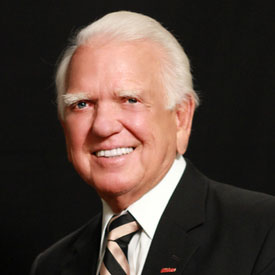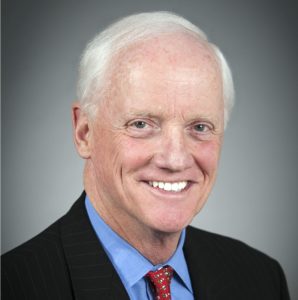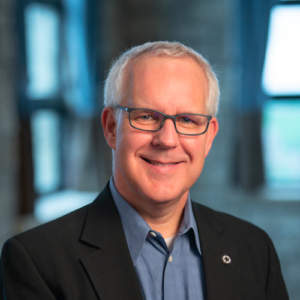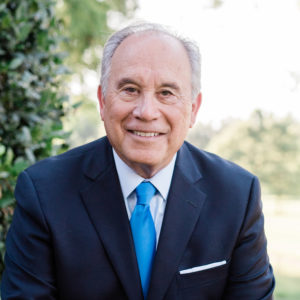Link to access the Live Stream – Live at 11:55
If any need technology help accessing the live stream, reach out to the office for assistance
6-15-2021
George P. Nigh served four different terms as governor, more than anyone in state history. He was born in McAlester, Oklahoma, to Wilber and Irene Nigh on June 9, 1927. After graduating from Eastern Oklahoma A&M College at Wilburton and East Central State College at Ada, he returned to McAlester and became a school teacher. In 1950, at age twenty-three, Nigh became the youngest member of the state legislature when elected to the House of Representatives from Pittsburg County. In 1953 he introduced the bill that made “Oklahoma!” the official state song.
In 1958 at age thirty-one Nigh was elected lieutenant governor, the youngest in state history and the youngest in the nation at the time. He failed in a bid for the governor’s office in 1962 but became governor for nine days in January 1963 after the death of U.S. Sen. Robert S. Kerr. The sitting governor, J. Howard Edmondson, resigned in order to be appointed by Nigh to fill Kerr’s Senate seat. During Nigh’s nine-day term he fired and replaced the members of the Oklahoma Planning and Resources Board to facilitate the approval of an agreement with the federal government to build the Arrowhead and Fountainhead lodges on Lake Eufaula.
After he left public office, Nigh started a public relations firm. Newspapers called him the most eligible bachelor in the state. He had dated but never found a girl he wanted to marry until he was introduced to brown-haired Trans World Airlines (TWA) ticket agent Donna Mashburn. A few months later they were married. She had a ten-year-old son, Berry Michael Mashburn. Together, the Nighs had a daughter, Georgeann.
In 1966 Nigh was elected lieutenant governor of Oklahoma again and served until he realized his lifelong dream of being elected governor of Oklahoma in the 1978 election. Gov. David Boren left office five days early to assume his new role as U.S. senator. Boren resigned as governor on January 2, 1979, at 11:59 p.m. Constitutionally, Nigh at that moment became governor for a second time. When Nigh was sworn in for his full four-year term five days later, it was actually the third time he had served as governor.
Nigh delivered his inaugural address at the State Capitol, not from a prepared text, but from cryptic notes written on his left hand. He had for most of his adult life written key words on his hand to refresh his memory when he stood before audiences. While waiting to be escorted onto the inaugural platform on the south steps of the Capitol, Nigh peeled off his black leather glove to reveal yet another set of notes for his inaugural speech.
As lieutenant governor and governor, Nigh was Oklahoma’s greatest cheerleader. As one of the nation’s most popular after-dinner speakers, he pushed Oklahoma tourism and industrial expansion efforts and enticed movie producers to film on location in the state.
After record tax cuts and advances in almost every area of state government, including sweeping organizational changes, Nigh was reelected for a fourth term in 1982. He is the only gubernatorial candidate to carry all of the state’s seventy-seven counties. He served Oklahoma well during his eight-year stretch as governor from 1979 to 1987. As a former member of the Oklahoma House and lieutenant governor, he had worked closely with the legislature during the best and worst of economic times. In his first gubernatorial term state revenues hit all time highs. But in his second term falling oil and gas prices cut deeply into state government’s income and resulted in budget cuts and large tax increases. Many believed Nigh’s steady hand during the economic downturn prevented long-range damage to the Oklahoma economy. He presided over state government during two of the most controversial moral dilemmas of the twentieth century, horse racing and liquor by the drink.
As governor Nigh increased minority representation on state boards and commissions and in state agency management positions. He also appointed the first women to be Oklahoma Supreme Court justices, Alma Wilson and Yvonne Kauger. He led unprecedented state efforts in highway construction, funding for the arts, and improving Oklahoma’s penal system.
Later, Nigh served as president of the University of Central Oklahoma. In that capacity he engineered a rehabilitation and enlargement of the college’s physical plant. George Nigh and his wife, Donna, headed the Donna Nigh Foundation, a nonprofit organization serving Oklahomans with developmental disabilities. At the end of the twentieth century George Nigh worked in the banking industry.
Oklahoma’s governor from 1995 through 2002, Frank Keating was one of twin sons born on February 10, 1944, in St. Louis, Missouri, into the family of Anne Martin and Anthony Francis Keating. In that year the Keatings, a prominent oil family, moved to Tulsa, Oklahoma, where Frank Keating attended private schools and graduated from Cascia Hall High School. After graduating from Georgetown University in Washington, D.C., in 1966, he received a law degree from the University of Oklahoma in 1969.
During a lengthy career as a public servant Keating held positions with the Federal Bureau of Investigations and as assistant district attorney in Tulsa. In 1972 he married Catherine Heller, an Oklahoma native, and the union produced two daughters and a son. A Republican, Keating served in the Oklahoma House of Representatives from District 70 in 1973–74 and in the Senate, representing District 38 from 1975 to 1981 and becoming minority leader. In 1981 he became U.S. attorney for the Northern District of Oklahoma. From 1986 to 1988 he served as assistant secretary of the U.S. Treasury and in 1988–89 as associate U.S. attorney general before moving into the position of general counsel for the U.S. Department of Housing and Urban Development in 1991–93.
Returning to Oklahoma to run for governor, he was elected in 1994, defeating Democrat and former lieutenant governor Jack Mildren and independent Wes Watkins. Keating was reelected in 1998. He received national recognition for leading the state’s recovery efforts after the April 19, 1995, bombing of the Alfred P. Murrah Federal Office Building in Oklahoma City. Only the third Republican since statehood to hold the governor’s office and the state’s only governor to have served in both houses of the legislature, he was responsible for the largest tax reduction in Oklahoma history. Reforms in the education system, the state purchasing system, and the worker’s compensation laws came about during his administration, and in 2002 a dome was added to the Oklahoma Capitol. After completing his second term as governor, Keating resided and worked in Washington, D.C.
Elected governor of the State of Oklahoma in November 2002, Charles Bradford Henry was born in Shawnee, Oklahoma, on July 10, 1963, to Charles T. and Audre L. Garrett Henry. Brad Henry attended the University of Oklahoma, receiving a bachelor’s degree in economics in 1985 and a doctorate in jurisprudence in 1988. He also served as managing editor of the Oklahoma Law Review in 1987–88. He subsequently served as president of Brad Henry Oil Company, Incorporated, from 1987 to 1989 and as a private-practice attorney before becoming city attorney of Shawnee in 1990. Henry’s wife, the former Kimberley Diane Blain, also a graduate of the University of Oklahoma, served as a classroom teacher for ten years at Shawnee High School, in history, economics, and government. She was one of five teachers in the nation to receive the 1999–2000 Close-Up Foundation’s Linda Myers Chozen Award for Teaching Excellence in Civic Education. The Henrys have three daughters.
A Democrat, in 1992 Brad Henry was elected to represent District Seventeen in the Oklahoma Senate in the Forty-fourth Legislature. Reelected in 1996 and 2000, he served until his election as governor. During his tenure in the Oklahoma Senate he chaired the Judiciary Committee, and served as vice chair of the Economic Development Committee, and sat on the Appropriations Committee. Henry was inaugurated as Oklahoma’s twenty-sixth governor on January 13, 2003, and was reelected to a second term.
Former Oklahoma Governor David Walters has likely logged more miles traveling internationally than any other business executive in Oklahoma. Millions of miles and hundreds of trips reflect the creation of networks, close relationships, programs and business transactions that make David Walters a universal citizen.
Governor Walters is best known in Oklahoma for his public service. Many know his background…. from a small farm community in Western Oklahoma, putting himself through the University of Oklahoma and receiving an Engineering degree, Then serving in the administration at the University of Oklahoma, where he left to obtain a Harvard Business School Degree and returned to provide leadership at the OU Medical Center for 5 years. He entered large-scale commercial real estate development where he worked to build high rise buildings and hotels. He ran for Governor as a complete unknown in 1986 and won his party’s nomination but not the general election. Four years later in 1990, he set a 36-year record for the margin of victory. David Walters brought his engineering and business administration education and his experience in business, his higher education administration, Medical Center administration, experience as Chair of the Department of Human Services Commission and Co-chair of the 1984, 100 member Commission on Government Reform and his Western Oklahoma farm based good sense and problem solving skills to the Governor’s Office. He was only 39 years old.
Presiding over a $7 billion organization employing 135,000 people, Governor Walters reduced the number of state government employees for the first time in the history of the State of Oklahoma. He aggressively promoted economic development, achieving a 15-year record in job growth. He successfully opposed all tax increases and yet oversaw a 30% increase in education funding by reallocating budget dollars. Walters passed the first capital improvements bond issue in Oklahoma in 25 years, investing over $350 million dollars in the State’s Higher Education facilities, including a fiber optic communications network. He advanced the first workers compensation insurance reform in 15 years, causing substantial rate reductions. Governor Walters led trade delegations to eight nations during his term. Oklahoma’s international trade grew at twice the national average during his term in office. He brought NASA engineers to Oklahoma to start a telemedicine network for remote rural health care. This all happened in four years.
Choosing not to run for re-election, David Walters entered the independent power industry. Walters has developed dozens of independent power projects all over the world. He negotiated and signed agreements on projects in China, Australia, Dominican Republic, Haiti, Ecuador, Pakistan, India, the United Kingdom, Spain, Finland, United Arab Emirates, France, Bulgaria, Poland, South Africa, Benin, Nigeria, Rwanda and in several locations in the U.S. Since 1995, David made over 200 international trips to 32 countries, traveling over 4,000,000 miles. It is estimated that he has initially developed or has played a significant role in the development of more than $2.5 billion of projects and transactions. Walters work in South Asia has been noted by the national press. In 2010 his work in Pakistan was featured in Forbes Magazine and the September 2011 issue of Vanity Fair identified Walters as a back channel negotiator communicating in 1999, two years prior to 9/11, between the U.S. Government and the Taliban in an effort to get Afghanistan to expel Osama Bin Laden.
Walters Power International (WPI) is currently active in Africa. Near desperation needs exist for electric power in Africa, demand is growing rapidly but large scale commercially viable transactions are few. Walters and his staff have learned the value of tenacity and are able to steadily apply their expertise, lessons, and credibility to do what few others can do…structure viable projects in poor underdeveloped countries. Recently Walters and his team, working on behalf of a joint venture partner, have completed a long negotiation for over $30M of financing from European based donor nations, for the first ever private power plant in the small country of Benin, that has 10 million residents desperate for better access to electricity.
International experiences are deep and varied. David and his spouse Rhonda, have walked the streets of Kashmir listening to the music played by the make shift barrel cookers, producing the meals and playing melodic tunes on their steel plates over their open flames. They gazed out from the Great Wall. David has found himself without a Portuguese translator in the middle of the Amazon, he has been deported from an African nation when they changed their mind about the planned airport issued visa. He barely made it out of Pakistan, where he has traveled 30 times, due to a Visa issue and he was inoculated with Yellow Fever with a used needle in a rusty shack before boarding a flight from Quito, Ecuador to Rio de Janeiro. He once flew on a dark and dingy Russian domestic flight from Moscow to Georgia where the cabin contained people and livestock. A contract flight from Karachi to India was so perilous that a young assistant swore to his God that he would immediately marry his girlfriend upon his safe return to the states, which he did, it didn’t last. He has eaten raw oysters on the streets of Saigon and lived, but got such food poisoning in Hong Kong at a five star restaurant that caused him to lay in the original Mandarin Oriental praying for death. While creating a significant power company in the UK David and Rhonda had a flat overlooking Hyde Park, where the evening strolls seemed to always put the world into perspective. In 2018 he flew to Egypt, Nigeria, Rwanda, Burundi, Kenya and London ….and home….in 7 days. He is fond of saying that life is a marathon and one should savor the moment, but he also has hanging on his wall the phrase…”If you want to be a wheel you gotta roll”!
David Walters and his wife Rhonda own Oklahoma Property Investors, which owns and operates over 500,000 s.f. of commercial real estate in Oklahoma City and Tulsa.
David Walters has been recognized for his political, business, community and philanthropic leadership by numerous state and national organizations and is frequently called upon for speeches and positions on the issues of the day. He recently was the founding President, serving for 8 years to establish, operate and fund raise for the Santa Fe Family Life Center, a sports and exercise outreach for disabled and disadvantaged children. David and Rhonda started what has become one of the largest OU Medical Center endowed chairs in Pediatrics in honor of their late son Shaun. They are active in Our Lady’s Cathedral Catholic Parish and David recently co-chaired a multi-million fundraising effort for the church. The nations largest Native American tribe recognized David in 2018 with its highest honor bestowed on a non-Indian, the Worchester Award, for his support of Oklahoma’s significant Native American population. He has been elected to lead the largest civic organization in Oklahoma, the Oklahoma City Rotary Club which is also the second largest such Rotary out of 38,000 Rotary Clubs worldwide. He was selected by the Sisters Cities organization in 2019 for their Global Vision award.
David continues to be active in shaping public policy. He organized and ran a multi-million dollar independent expenditure campaign for the 2018 election hoping to move Oklahoma to a more progressive status….he was elected in 2019 to the Executive Committee of the Democratic National Committee, a rare opportunity to help direct one of the great national parties. He is currently active in organizing and supporting initiative petitions for an independent expenditure campaign and for the expansion of Medicaid funding in Oklahoma. He is also organizing a progressive policy and candidate independent advocacy organization called the Oklahoma Center.
David and Rhonda are crazy about their grandchildren….Ella (14), Harrison (12), Everett (5) and Hattie Lou (2)….they are close to their daughters and their husbands Tanna and Bryan, Kristen and Jake and Elizabeth and Michael….they also are only a beloved memory away from their late son Shaun.
In addition to their family Rhonda and David find themselves increasingly grateful for their many friends, the wonderful past experiences and great opportunities ahead and the guidance that they have from their Catholic faith.




